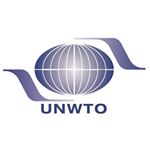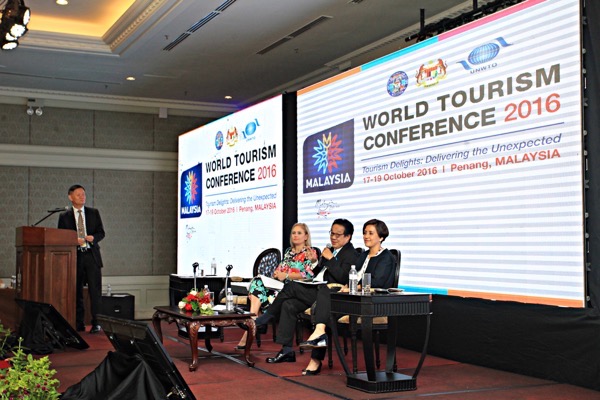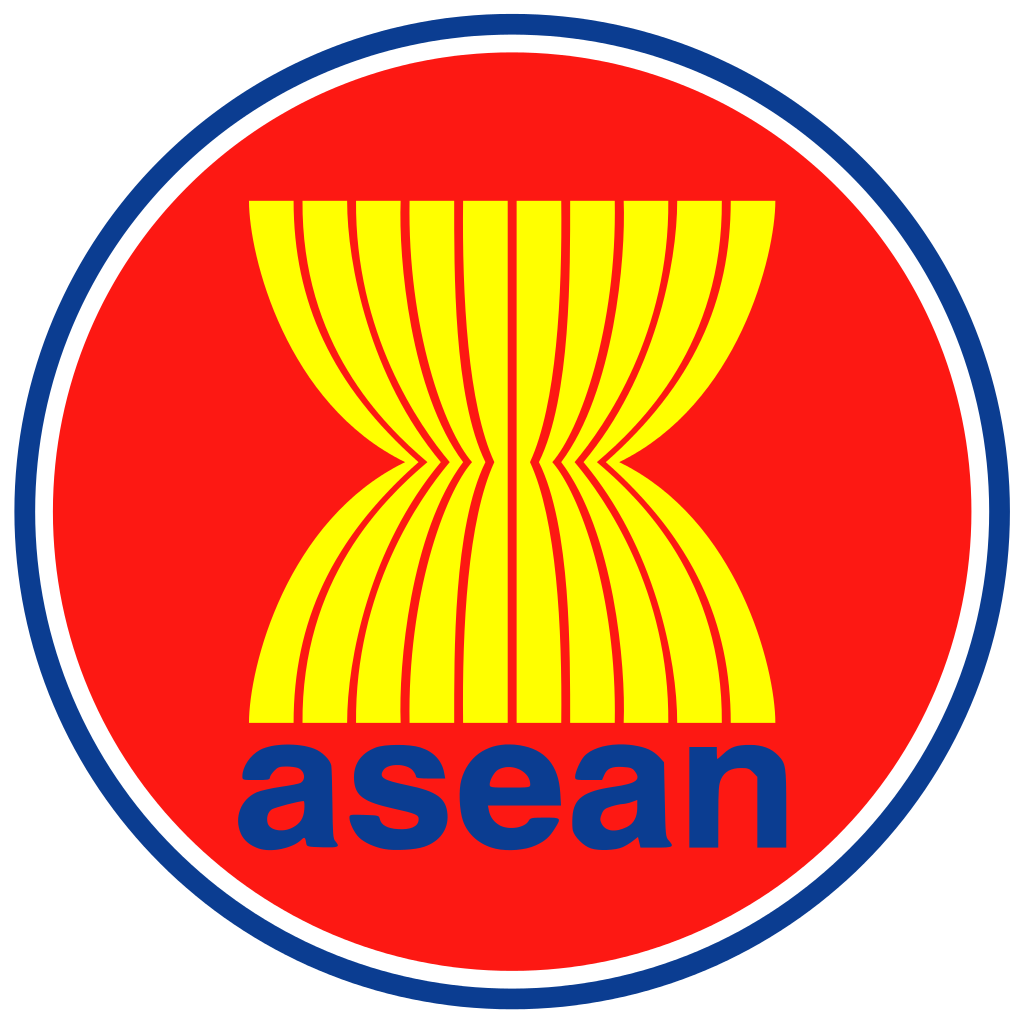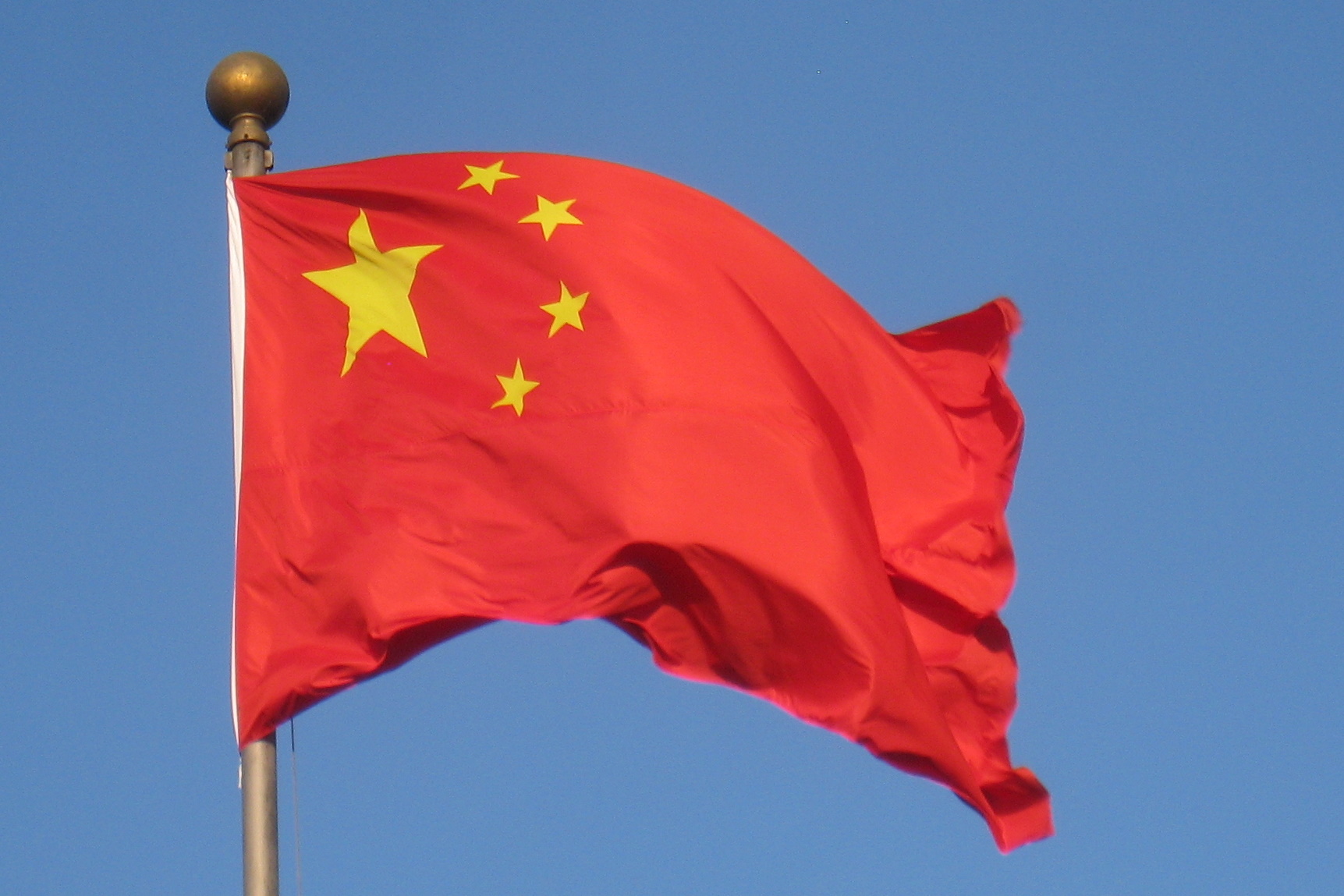

UNWTO Network of Sustainable Tourism Observatories welcomes Croatia Observatory
The Croatian Sustainable Tourism Observatory (CROSTO) has become a member of the UNWTO International Network of Sustainable Tourism Observatories (INSTO). This Observatory, hosted by the Institute for Tourism in Zagreb, is responsible for monitoring sustainable tourism in the Adriatic Croatia.
“Sustainable tourism development requires adequate measurement and evidence-based decision-making. We are very pleased to welcome the Croatian Sustainable Tourism Observatory to the UNWTO INSTO Network. We trust it can make a key contribution to support the vision set by Croatia for the future of its tourism sector; a sector that contributes to the three pillars of sustainability: economic, social and environmental” said UNWTO Secretary-General Taleb Rifai.
“Through its membership in INSTO, Croatia is also sharing the global strategic commitment to act responsibly and with care towards the space we live in,” mentioned the Ministry of Tourism of Croatia, Gari Cappelli.
Croatia’s commitment to sustainability has been emphasized in its Tourism Development Strategy 2020. The initiative aims at fostering innovation in the framework of sustainable tourism. The efforts of the country in that regard have been recognized by the European Commission through the concession of the ETIS and Accessible Tourism Awards to Mali Lošinj town. The breadth and depth of insights gathered on sustainable tourism practices on the island have been particularly praised in that recognition.

UNWTO and EBRD strengthen sustainable tourism in the SEMED region
MADRID, Spain, 27 of October 2016 – The tourism sector in the southern and eastern Mediterranean (SEMED) region has huge potential to become a major player in the economy and contribute to job creation. However, challenges remain.
In order to address issues facing the development of tourism in the SEMED region the World Tourism Organization (UNWTO), the European Bank for Reconstruction and Development (EBRD) and the Ministry of Tourism and Antiquities of Jordan held a two-day conference in Petra, titled ‘Investing in Tourism for an Inclusive Future: Challenges and Opportunities’.
Held under the patronage of Hani Mulki, the Prime Minister of Jordan, the conference brought together participants from the public and private sectors to discuss the role of tourism in creating job opportunities, promoting energy efficiency and strengthening micro, small and medium-sized enterprises (MSMEs).
Participants discussed the importance of access to training and appropriate skills to create employment opportunities for young people and women, and explored how to reduce skills mismatches. Compliance with international standards for hospitality, services, food quality and safety, as well as environmental and labour regulations, are vital for the competitiveness of the sector and its development, the conference noted.
Enhancing resource and energy efficiency by implementing and promoting sound policies and improving building standards was another focus of discussion, along with the role of financial institutions and investors as drivers of sustainable tourism.
In addition, participants considered how to strengthen the role and competitiveness of MSMEs in the tourism value chain. Sectors such as transport, handicrafts, hospitality, gastronomy, furniture and electronic appliances are interlinked with the tourism sector and can benefit significantly from its development. Yet, maximising the potential of tourism requires strong, coordinated action in areas such as market access, the movement of travellers, services, goods, quality and standards, and foreign direct investment.
“Despite the challenges that the SEMED region currently faces, it has tremendous potential for tourism as demonstrated by its record growth over the years. We must recall that tourism accounts for 15 per cent of the total exports of the region and that over the last 10 years international tourist arrivals increased from 48 million to 71 million in the MENA region alone. Considering tourism’s capacity to promote economic growth and advance inclusive development, we believe that this conference and its focus on investment will contribute to reviving the sector in the region,” said UNWTO Secretary-General, Taleb Rifai.
Mattia Romani, EBRD Managing Director for Economics, Policy and Governance, said: “Job creation and skills development, energy efficiency and MSMEs are priorities for the EBRD and by supporting the tourism sector we are targeting the various components to strengthen economic growth in the region. We also believe that an inclusive and thriving tourism sector that creates good jobs, in particular for young people, helps foster peace; when young people have good jobs, they also have incentives and ambitions to continue to grow, establish businesses, invest and, therefore, maintain such peace and stability. Together with UNWTO we are working to strengthen related policies and develop a sustainable sector.”
HE Lina Mazhar Annab, Minister of Tourism and Antiquities in Jordan, said: “Tourism is one of the most important socio-economic sectors in Jordan contributing close to 11 per cent to the gross domestic product. The government of Jordan realises the importance of this sector in generating revenue as well as in creating employment opportunities and has launched a number of economic reforms and incentives to facilitate investment in the country’s tourism. We need to continue providing all the necessary incentives to attract local and foreign direct investments in tourism because this sector generates jobs, empowers small and medium enterprises, and contributes heavily to the preservation and promotion of the natural and cultural heritage”.
Among the challenges for the sector, participants stressed the quality of the business environment (including public-private dialogue, political stability, security, visa facilitation, sanitation and health conditions, energy costs and other production factors); access to finance; availability of a workforce with appropriate skills; compliance with international standards (in hospitality, services, food quality and safety, environmental and labour regulations); and access to tourist destinations (including the quality and availability of infrastructure, such as airports and ports).

10th UNWTO/PATA Forum on Tourism Trends and Outlook commences in Guilin, China
The World Tourism Organization (UNWTO), the Pacific Asia Travel Association (PATA) and the People’s Government of Guilin of China celebrate between 20-22 October the 10th UNWTO/PATA Forum on Tourism Trends and Outlook. The theme of this special 10th anniversary edition is ‘Tourism 10:10 – Looking back to look forward’.
With the collaboration of the Polytechnic University of Hong-Kong, a UNWTO Affiliate Member, theForum has become over the last 10 years a reference platform on global and regional tourism trends. Parallel to the 10th Edition of the Forum, the 5th Annual Conference of UNWTO Sustainable Tourism Observatories in China will take place also in Guilin on 20 and 21 October.
“Tourism is a strong contributor to poverty alleviation as recognized by the Sustainable Development Goals and to be here in Guilin is the perfect occasion to remind that the Government of the People’s Republic of China has prioritized this sector as a tool to lift 17% of the country’s impoverished population out of poverty by 2020,” said UNWTO Secretary-General Taleb Rifai.
Tourism trends, changes in travel behavior and booking patterns and sustainable-related practices applied to the sector were some of the themes addressed throughout the Forum. The inclusive angle of tourism, a topic widely advocated by UNWTO, was also part of the discussions that addressed the participation of women in rural community tourism.
In 2015, Asia and the Pacific received 278 million tourists (+5% than in 2014) and will reach 535 million by 2030. International tourism generates xx billion USD in exports in Asia and the Pacific. As UNWTO elaborates in ‘Tourism 2030, A Global Overview,’ international tourist arrivals will reach 1.8 billion by 2030. By that time, Asia and the Pacific will gain most of the new arrivals. China is also a leading tourism destination – 4th in the world after France, USA and Spain with 57 million tourists in 2015.
The South East Asian region was the fastest growing in terms of international tourist arrivals in the first six months of 2016 with a growth rate of 9%, well above the global 4% increase registered in the world.

4th World Tourism Conference focuses on the ‘tourists first’ – improving the visitors experience
Malaysia, the second most visited destination in South East Asia, has hosted the 4th edition of the World Tourism Conference (WTC) jointly organized between the World Tourism Organisation (UNWTO) and the Ministry of Tourism and Culture Malaysia (MOTAC).
Under the theme ‘Tourism Delights: Delivering the Unexpected’, the Conference focused on strategies to enhance the visitors experience under the principle of “tourists first”. The round tables on ‘Tourism a Sunrise Industry?’ and ‘Tourism Experiences: Breaking New Grounds’ debated tourism trends beyond 2030 as well as how to reinvent the sector with a customer-oriented focus.
“We have witnessed two revolutions: on technology and on travel. The confluence of these has resulted in a new traveller who is technology-savvy, connected and informed who increasingly desires authentic, unique and valuable travel experiences and who is also more responsible and conscientious. Our sector needs to harness the emerging desire for ‘positive-impact’ tourism to contribute to a better world,” said UNWTO Secretary-General Taleb Rifai at the Opening of the Conference.
“A key element to advance tourism is creativity and innovation (…) in that regard, Malaysia has enhanced its tourism products by packaging “local community’s daily life” into a touristic offer – the “homestay experience” – providing travelers the opportunity to immerse in the traditional village lifestyle and to interact with local hosts, as well as other initiatives such as Villagestay, Visit MyFelda and Visit MyLonghouse,” explained the Minister of Tourism of Malaysia, YB Dato’ Seri Mohamed Nazri bin Abdul Aziz.
Additional sessions were dedicated to the endless opportunities that tourism brings to communities, where the relevance of sustainable practices, rural and youth tourism were underlined.
Malaysia has recently presented the Economic Transformation Programme (ETP) which has prioritized tourism as a catalyst for economic prosperity. Ecotourism, family-friendly destination, business tourism, and events, entertainment and sports have been emphasized within this strategy. With this Programme, Malaysia hopes to reach 36 million tourist arrivals by the year 2020. In 2015, Malaysia received 27.5 million international tourist arrivals.

UNWTO partners with EBRD to debate tourism in the MENA region
The World Tourism Organization (UNWTO) and the European Bank for Reconstruction and Development (EBRD) in cooperation with the Ministry of Tourism and Antiquities of Jordan are organizing a regional conference on ‘Investing in Tourism for an Inclusive Future: Challenges and Opportunities’. The Conference will take place in the world heritage city of Petra, Jordan, on 26-27 October.
Under the patronage of Jordan’s Prime Minister Hani Mulki, the conference will gather the ministers of tourism from Egypt, Jordan, Lebanon, Montenegro, Palestine and Tunisia, alongside representatives from the private sector, investment funds, tourism companies and associations.
Moderated by CNN Money Emerging Markets Editor John Defterios, participants at the high level panel will discuss how tourism can promote inclusive development in the southern and eastern Mediterranean with a particular focus on human capital, energy efficiency and micro, small and medium-sized-enterprises.
The partnership between UNWTO and the EBRD aims at supporting inclusive and sustainable tourism, building on UNWTO’s expertise in capacity building and the EBRD’s longstanding financial support for the private sector.

Mongolia hosts the UNWTO Silk Road Conference on Nomadic Tourism and Sustainable Cities
The World Tourism Organization (UNWTO), together with the Ministry of Environment and Tourism of Mongolia and the World Cities Scientific Development Alliance (WCSDA), organized the International Silk Road Conference on Nomadic Tourism and Sustainable Cities in Ulaanbaatar, Mongolia on 13-15 October 2016.
The conference gathered Ministers and high-level officials from nine UNWTO Silk Road Member States, official representatives from Silk Road regions, the United Nations Educational, Scientific and Cultural Organization (UNESCO), and UNWTO Affiliate Members to address the potential of nomadic and sustainable city tourism. The event, officially opened by the Chairman of the State Great Hural of Mongolia, Mr. Enkhbold Miyegombo, attracted over 350 delegates from 21 countries.
The Silk Road has become one of the most visited international travel routes. Despite such growth, an increase in visitation also brings challenges, such as the protection of the environment and the maintenance of necessary heritage standards. Bearing in mind the Sustainable Development Goals (SDG’s) and the upcoming International Year for Sustainable Development for Tourism 2017, participants discussed these challenges and the large potential of developing nomadic tourism trails and products.
“The sustainable growth of nomadic tourism requires a balance between tourism promotion, heritage management and respect for local communities. It requires the collective engagement and cooperation of Silk Road destinations, the private sector and the civil society. With these ingredients in place, we can produce responsible nomadic tourism products to diversify Silk Road tourism and achieve the adequate tourism development for the countries involved.” said UNWTO Secretary-General, Taleb Rifai in opening the conference.
“Today we welcome, with our uttermost respect and pride, all delegates to the International Silk Road Conference on Nomadic Tourism and Sustainable Cities. We believe that the great and historic Silk Road will be revived as an exciting route full of travelers and adventurers, hereby becoming a symbol for mutual understanding and peace among nations in the new millennium.” said the Minister of Environment and Tourism of Mongolia, Ms. Oyunkhorol Dulamsuren during the opening ceremony.
The Silk Road countries agreed that, while the Silk Road presents extensive opportunities, long-term success will depend upon increased collaboration in the three key areas identified in the Silk Road Action Plan: marketing and promotion, capacity building and destination management, and travel facilitation. UNWTO would like to thank Turkish Airlines for supporting this event.

1 in 10 of all tourism investment dollars go into ASEAN by 2026, says WTTC
One in ten of all tourism investment dollars will go into ASEAN countries over the next ten years, according to new research by the World Travel & Tourism Council (WTTC).
According to the research, ?Travel & Tourism Investment in ASEAN?, over the years 2016 ? 2026, 9.7% (nearly 1 in 10 dollars) of global investment in Travel & Tourism will be in ASEAN.
Travel & Tourism investment in ASEAN over the next decade will total US$782 billion, which is 7.4% of all investment in the region. This represents growth of 6.3% per year, nearly 2 percentage points faster than the global average.
Investment spending will be dominated (95%) by five major destinations – Singapore, Thailand, Vietnam, Indonesia, and Malaysia – which together account for over 80% of ASEAN?s international arrivals and tourism contribution to GDP.
However given the strong demand for travel to this region, some countries are still at risk of not investing enough to ensure infrastructure meets the needs of forecast tourism growth.
The report highlights the investment needed in ASEAN in order to support the region?s forecast Travel & Tourism growth over the next decade.
ASEAN is one of the world?s most tourism dependent regions. Travel & Tourism contributes 12.4% of GDP, nearly 4% above most other world regions. However, according to the report, ASEAN Travel & Tourism infrastructure currently only ranks ahead of Latin America, the Caribbean and Africa.
As such the outlook across the ten constituent countries of ASEAN is mixed:
- Myanmar, Cambodia and the Philippines are classified as infrastructure constrained. Forecast investment is not deemed to be sufficient to ensure that poor existing infrastructure can be improved to meet the needs of future Travel & Tourism demand and to maintain competitiveness.
- Vietnam and Laos are identified as having ?improving infrastructure and growth prospects? although future investment will need to be channelled effectively and targeted at priority areas.
- Thailand is the only country classified as ?future focus critical? where relatively strong existing T&T infrastructure and future demand growth need to be supported by a continued investment focus.
- Malaysia and Brunei Darussalam are expected to balance future infrastructure investment needs with forecast demand growth.
- Singapore and Indonesia are classified as ?having high levels of infrastructure spending and forecast growth that should allow them to sustain projected levels of demand.
David Scowsill, President & CEO, World Travel & Tourism Council, said: ?Our research shows that investment in infrastructure is critical to the future sustainability of Travel & Tourism. As one of the fastest growing tourism markets, public and private sector leaders across ASEAN must prioritise tourism investment and channel it effectively to ensure the region?s infrastructure can meet this increasing demand.
Countries such as Singapore and Indonesia are leading the way in terms of their infrastructure development but across ASEAN there is much more which is required. For some countries this might mean expanding capacity, through increasing visitor accommodation, airport capacity and tourist facilities while others need to maintain and enhance their current infrastructure.?

Luxor hosts UNWTO 5th UNWTO Global Summit on City Tourism: Cities: Local Culture for Global Travellers
The World Tourism Organization (UNWTO) and the Government of the Arab Republic of Egypt are organizing the 5th Global Summit on City Tourism: “Cities: Local Culture for Global Travellers” on 1-2 November 2016 in Luxor. During the summit, UNWTO will launch the Mayors for Tourism Initiative.
Tourism has become a central component of the economy, social life and geography of many cities in the world and is ideally positioned to seize the opportunities provided by urbanization. Yet many challenges are emerging, including the need to effectively manage the growth of tourism in many cities around the globe.
The 5th Global Summit on City Tourism: “Cities: Local Culture for Global Travellers” will discuss city tourism trends and debate themes such as sustainable development, spatial organization and rejuvenation, innovation in city tourism, cross-cultural behaviour, and new business models or the so‑called ‘sharing economy’.
The development of clusters that engage public and private players from all sectors is central to the new paradigm of city tourism development, in which tourism needs to be a tool for social cohesion and cultural preservation, beyond its fundamental contribution to economic activity.
As part of the action plan of the UNWTO City Tourism Network, UNWTO will launch a new initiative gauged to gather mayors and decision makers in cities around tourism issues. The Mayors for Tourism Initiative aims to promote the important role of tourism as a driving force for socio‑economic development in cities, and place the sector as a priority in the urban agenda.
Mayors of world cities have been invited to share best practices in managing the challenges and opportunities that tourism presents to local administrations and to propose formulas to align their tourism‑related policies with those of national governments.
The Summit will be preceded by the 104th Session of the UNWTO Executive Council, taking place in Luxor on 30 October-1 November 2016.

China’s government commitment to Travel & Tourism pays off, says WTTC CEO
China is one of the most successful examples of where prioritisation of Travel & Tourism in government policy leads to higher income and more jobs, said David Scowsill, President & CEO, World Travel & Tourism Council (WTTC).
Speaking at the Global Tourism Economy Forum (GTEF) in Macau, Scowsill emphasised the power of Travel & Tourism to drive economic growth and create jobs and highlighted the government of the People’s Republic of China’s recognition of this.
China has constructed thousands of kilometres of high-speed rail track and over 60 airports over the last decade and is looking to invest over US$720 billion in the next three years to meet the demand of both domestic and international travellers.
According to WTTC research, China’s Travel & Tourism sector will grow by 7% per annum for the next ten years. By 2026, the sector will underpin around 10% of the total Chinese economy and almost 100 million jobs.
“China is currently the second largest tourism economy in the world and is one of the fastest growing. The government plays a great role in stimulating this growth. We encourage the government to continue to invest in the sector and to consider implementing visa waiver schemes, which will stimulate inbound travel. The number of foreigners visiting China has remained static at approximately 55 million people for around five years”, Scowsill said.
Scowsill further addressed Macau, the host of GTEF, arguing that the island “continues to re-invent itself as a tourist attraction, bringing on new products to ensure that guests return time and time again.”
In 2015, over 70% of Macau’s economy was generated through Travel & Tourism, taking into account the sector’s indirect, direct and induced contribution.

UNWTO deeply saddened by the effects of the hurricane Matthew
UNWTO is deeply saddened by the tragic effects brought by hurricane Matthew to a number of destinations in the Caribbean.
“On behalf of the international tourism community, UNWTO conveys in particular its heartfelt condolences to the families and friends of the victims in Haiti, The Bahamas and Saint Vincent and the Grenadines, where Hurricane Mathew, described as the most powerful storm to hit the Caribbean in a decade, has taken the lives of so many innocent people” said UNWTO Secretary-General, Taleb Rifai.
Other countries in the Caribbean – Cuba, Dominica, Jamaica and Saint Lucia – have also been impacted by the storm suffering some level damage.
“UNWTO will work alongside the affected countries in all the necessary measures to support them and trust that as in previous occasion the people of these countries will show their resilience as life gets back to normal and they open for business” added Mr Rifai.
The Minister of Tourism of Jamaica, and Chairman of the Board of the UNWTO Affiliate Members, Edmund Bartlett, has manifested also his solidarity with the affected neighbouring countries and offered his support.
